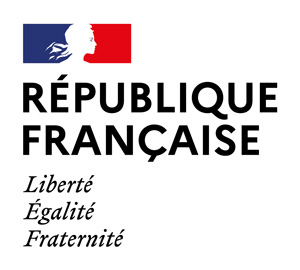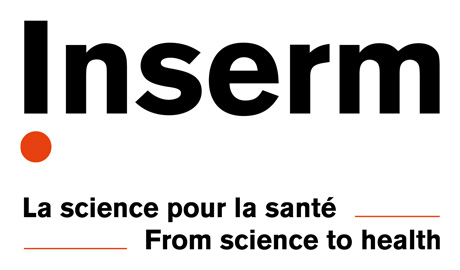





Type of contract CDD
Location Lyon, France
Statut Available
Key Words Embryology, cancerology, nervous system
Details of the offer
Working place: MeLiS Mechanisms in Integrative Life Sciences / Claude Bernard University
Missions / Project:
Pediatric cancers are uniquely challenging due to their high aggressiveness and the long-term sequelae associated with current treatments. Nearly half of these cancers originate during pregnancy, from embryonic cells, but the impact of this early origin on malignant cell behavior is not well understood. Their high heterogeneity and plasticity likely stem from developmental origins, as they arise from transient progenitor cells with innate migratory and proliferative abilities. Understanding how these embryonic traits contribute to cancer aggressiveness is crucial for developing targeted therapies. Traditional methodologies, which draw parallels between pediatric and adult cancers, often fail to account for these fundamental differences in context and origin. Our team led by Valérie Castellani is historically a development biology lab and has started some years ago to study these pediatric cancers through the lens of their embryonic origin. We pioneered the approach of micro-implanting human pediatric cancer cells into their corresponding embryonic environments, using the chick embryo as a model. This approach turn-out to be fruitful to answer unresolved questions on Neuroblastoma etiology (Delloye-Bourgeois et al, Cancer Cell 2017, Ben Amar et al, Nature Comm 2022, Akkermans et al, Cell 2022, Villalard et al, Nat Comm 2024) and led to the creation of the Oncofactory start-up. The group led by Servane Tauszig-Delamasure initiated the study of a second neuro-developmental tumor, applying the transplantation paradigm to Medulloblastoma (MB), a heterogeneous cancer classified into four subgroups, each arising from various cerebellar progenitors. This cancer affects newborn, children and teenagers. 1/3 of patients display metastasis at diagnosis: tumoral cells navigate in the cerebrospinal fluid and invade eppendyma and meninges along the spinal cord and the cerebral hemispheres. We set up the graft of human MB cells in the primitive cerebellum of the chick embryo and observed tumors in few days. We combined the model with cutting-edge imaging (light-sheet and spinning disk confocal microscopy) and transcriptomic analyses. We discovered with the MB avian model that malignant cells of the different subgroups, when grafted into the rhombic lip, a cerebellar progenitor domain, express morphological features and select migration patterns typical of their respective cells of origin. They also leverage developmental signaling pathways, such as ROBO-SLIT, and form tumors in locations consistent with those observed in patient by MRI (Mallet et al, submitted).
Our investigations in the proposed project on medulloblastoma will focus on characterizing the communication of MB cells with their embryonic environment during this characteristic leptomeningeal metastatic dissemination. Due to the lack of experimental models, the mechanisms that drive this process remain neglected. We have modelled the metastatic dissemination of MB cells in the leptomeningeal space of the chicken embryo. We observe that the metastases navigate in the cerebrospinal fluid and invade territories in the leptomeningeal space as it is the case in patients. We will further investigate the proximity of MB cells to their progenitors of origin, applying comparative spatial and single-cell transcriptomic and imaging approaches. Our aim is to identify the developmental mechanisms exploited by tumour cells to invade these pre-metastatic niches. Understanding these mechanisms should help us to diagnose earlier theses cancer, better treat the children and/or reduce their long-term sequelae.
Frame of the project: Our Melis Unit is composed of 120 people, in a large institute (400 persons). The Castellani team is composed of 20 people. In the building, we have access to Imaging and Transcriptomic platforms. We have close interactions with clinicians who provide the patients samples (Ihope, HCL, hospitals in Lyon). We are integrated in a European ERC Synergy network with a team in Oxford and another in Barcelona. We are also actively involved in two Pediatric Cancer Research networks (React4kids and Southrock).
Proposed collaboration within ArchiFun network (not mandatory at this stage):
Our project is already at the interface between developmental biology and oncology. We strongly believe that innovation emerges from multi-disciplinarity. Our project might have a link with host-pathogens interactions. Indeed, we suspect tumoral cells to “borrow” pathogens mechanisms to cross the Cerebrospinal fluid/brain barriers. Our work is fundamental but the ultimate goal is to translate our results to develop targeted therapies. The advantage of our avian model is to reconstitute the physiological embryonic environment in which this cancer emerges. The embryo being imaged in 3D with light-sheet microscopy, the physiology can be taken into account in the study of this cancer. The putative causative role of the exposome with pediatric cancer is an emerging field. Our avian model is particularly adapted to answer to the questions asked by epidemio/ecology researchers. Finally, as Medulloblastoma is a pathology occurring during cerebellum development, our project is at the interface between Neuroscience and Oncology. So this project might open up new collaborations.
Type of job
Type of contract CDD
Application deadline
Employment start date
Contact
Supervisor(s) name(s), Affiliation(s), eMail address(es) for contact:
Servane Tauszig-Delamasure, PhD, DR2 CNRS, +info
Equipe Neuro-développement embryonnaire et pathologies pédiatriques associées (V. Castellani)
Institut NeuroMyoGène MeLiS - UCBL-CNRS UMR 5284 - INSERM U1314
Faculté de Médecine et de Pharmacie
8 Avenue Rockefeller 69008 Lyon
Phone: (33)(0)6 65 68 43 85